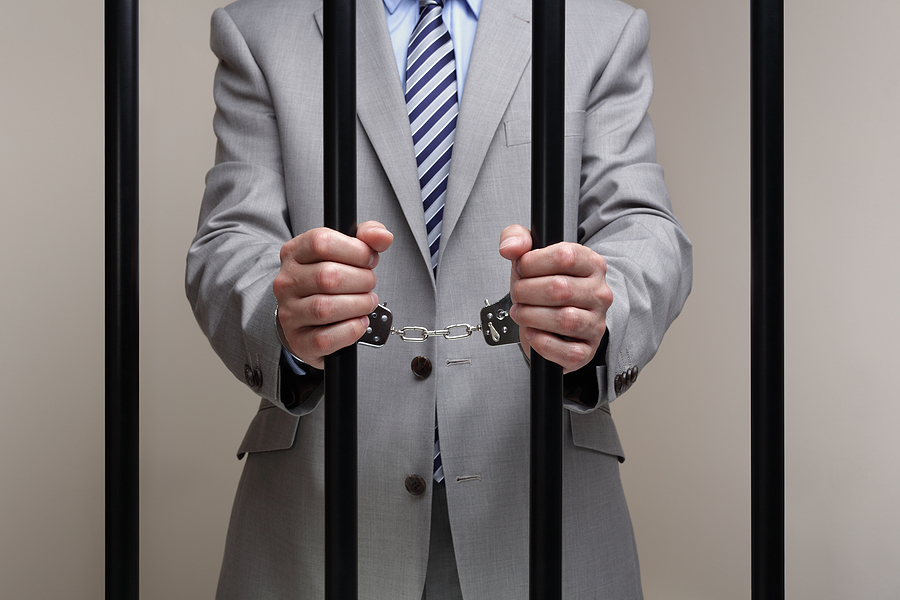What Is Considered a White Collar Crime in Louisiana?
White collar crimes are often referred to as corporate crimes because they involve people who are publicly deemed respectable, often with strong societal status. The crimes tend to center around things such as embezzlement, money laundering, extortion or bribery, identity theft, internet crimes, or fraud (including insurance, mail or bank, or Medicaid fraud), not necessarily involving physical violence.
However, just because they’re more likely to be involved with digital records and databases than guns and drugs doesn’t mean they’re not serious crimes. These are usually federal crimes handled by federal investigators. If convicted, the person charged may end up in federal prison for six months to ten years and be forced to pay fines of anywhere from $500 to $20,000. If the conviction is not the first one for the person charged, they will likely face more severe consequences.
The conviction could also lead to a permanent criminal record that would make it difficult, if not impossible, to retain employment or gain new employment. The reputational damage that occurs with this type of conviction can be even worse, leading to breakdowns within families and loss of marriages, etc.
What Does it Mean if I Receive a Letter or Subpoena Referring to Me as a Target?
That means you’re probably about to be indicted for white collar crimes. The U.S. Attorney’s Office reports that a target is someone for whom the prosecutor or grand jury has determined has considerable evidence against them involving a crime(s).
If the letter comes as a notice or subpoena stating you’re involved in a grand jury proceeding, it’s vital to contact an experienced white collar criminal defense attorney as soon as possible. Grand jury proceedings are deeply serious events. Your attorney can help determine if you should voluntarily cooperate or if there are reasons why you shouldn’t or may not need to. Regardless of whether or not you end up facing a grand jury, following the laws of subpoenas and responses is crucial to avoid making your case worse. Your attorney can keep you apprised of what you do and don’t need to do and ensure you don’t miss deadlines that could cause you considerably more trouble.
What Defense Strategies Might Be Useful in Defending Me Against White Collar Crime Charges?
This is a big question because there are many types of white collar crimes, and each has variables that make it unique in terms of defense. The best thing to do is to hire an experienced attorney who can look at the nuances of your case and advise you on the best approach.
While not an exhaustive list, some defenses are used often in white collar crime defenses, including the following.
- Lack of evidence. The prosecutor needs to convince a jury that you’re guilty beyond a reasonable doubt in order to obtain a conviction. That means your attorney will challenge evidence whenever possible to find it inadmissible, unreliable, inauthentic, or insufficient. Establishing guilt beyond a reasonable doubt is a high bar for the prosecutor.
- No intent. This means that if a crime occurred, it wasn’t done intentionally. This can happen when someone takes an illegal action accidentally, by mistake, or believing they weren’t committing a crime (known as acting in good faith). Intent is a major part of proving guilt beyond a reasonable doubt.
- Entrapment. This can be tricky to prove, but not impossible. Entrapment involves someone within law enforcement or other legal capacity coercing or tricking someone into committing a crime they otherwise wouldn’t have committed. To prove entrapment, it’s necessary to provide evidence that the idea of committing the crime came from the entrapping organization and that you would not have committed the crime otherwise.
- Constitutional rights are violated. The U.S. Constitution supplies U.S. citizens with various rights, and if those are violated during a criminal proceeding, it can cause immense problems for the prosecutor. Among those rights are that the person charged must be read their Miranda rights when they’re arrested, which gives them the right to remain silent and not answer questions until their attorney is present. There’s also the matter of illegal search and seizure, in which evidence may have been seized without following the required legal channels (such as getting a search warrant). If the evidence was seized illegally, it may be inadmissible.
- Statute of limitations. In Louisiana, what most people understand as the statute of limitations is referred to as a prescriptive period. In Louisiana, the prescriptive period in which the prosecutor can bring charges may vary according to the crime. Check with your attorney to see what applies to your case.
- Insanity or intoxication. If the person charged can be found not to have been of sound mind when the crimes were committed, whether for lack of mental health or because they were under the influence of drugs or alcohol, it may be argued that they can’t be held responsible, especially if someone else exerted coercion for them to commit the crime while lacking mental soundness or sobriety.
What Should I Do if I Need Help White Collar Crime Charges in Louisiana?
Call Whiddon Criminal Defense as soon as possible at 318-594-4565 to request a free case evaluation. We understand how serious these charges can be. Our experienced, knowledgeable criminal defense attorneys can go through the specifics of your case and the related charges to determine what may be the right approach to lead to the best possible outcomes.


 Call Us Now
Call Us Now Email Us Now
Email Us Now


